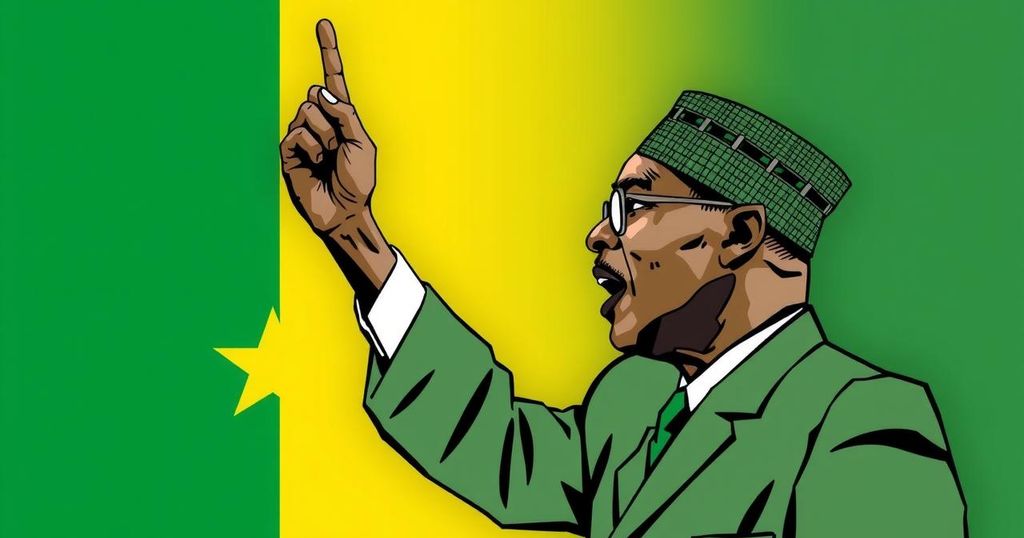Senegal’s Elections: A Crucial Step for President Faye’s Reforms

Senegal held parliamentary elections on Sunday, crucial for President Bassirou Diomaye Faye’s reform agenda. Voters chose lawmakers in a tightly contested race, with Faye’s PASTEF party hoping to gain a majority in the National Assembly to implement promised reforms. Political tension and violence marred the campaign period, reflecting the broader struggles within Senegal’s political landscape, particularly among the younger population.
On Sunday, Senegal’s parliamentary elections concluded, pivotal for President Bassirou Diomaye Faye, who secured the presidency via an anti-establishment campaign in March. Over 7 million registered voters cast ballots for 165 National Assembly members amid increasing tensions after the dissolution of the previous parliament. Faye’s PASTEF party is vying for at least 83 seats to enable him to pursue essential reforms — including combating corruption and redistributing the country’s natural resources. The country’s youth, comprising more than 60 percent of its population, is particularly invested in these reforms as they face economic hardships, contributing to high rates of emigration to Europe in search of better opportunities. Violence punctuated the electoral campaign, highlighting the political discord in Senegal, with clashes reported among supporters of various parties. Ousmane Sonko, a significant figure in Faye’s ascent, condemned violence against PASTEF supporters, urging for restraint and peaceful conduct among his followers. As results are awaited, Faye enjoined all parties to respect the election outcome and maintain Senegal’s reputation as a stable democracy in a region otherwise fraught with political instability.
Senegal’s recent history has been marked by a volatile political landscape, leading to widespread discontent among the younger populace. This demographic’s frustration stems from high unemployment rates and rampant inflation, prompting many to seek better lives abroad. The elections represented a chance for Faye to solidify his power and initiate reforms promised during his presidential campaign. His PASTEF party, a relatively new political force, seeks to break the long-standing political dominance of the established parties. This election not only impacts domestic policies but also reflects broader trends in youth engagement and governance in Africa, as many countries grapple with similar issues of leadership and representation.
The recent parliamentary elections in Senegal represent a critical juncture for President Faye’s administration, with the potential to unlock substantial reforms needed to address economic challenges and enhance governance. As the final vote count is awaited, the political climate remains tense, underscoring the challenges that the newly elected assembly will face in achieving stability and progress amid widespread public expectations for change. Furthermore, ensuring peaceful transition and respect for democratic processes will be essential for Senegal to uphold its legacy as a bastion of democracy in West Africa.
Original Source: www.pbs.org








